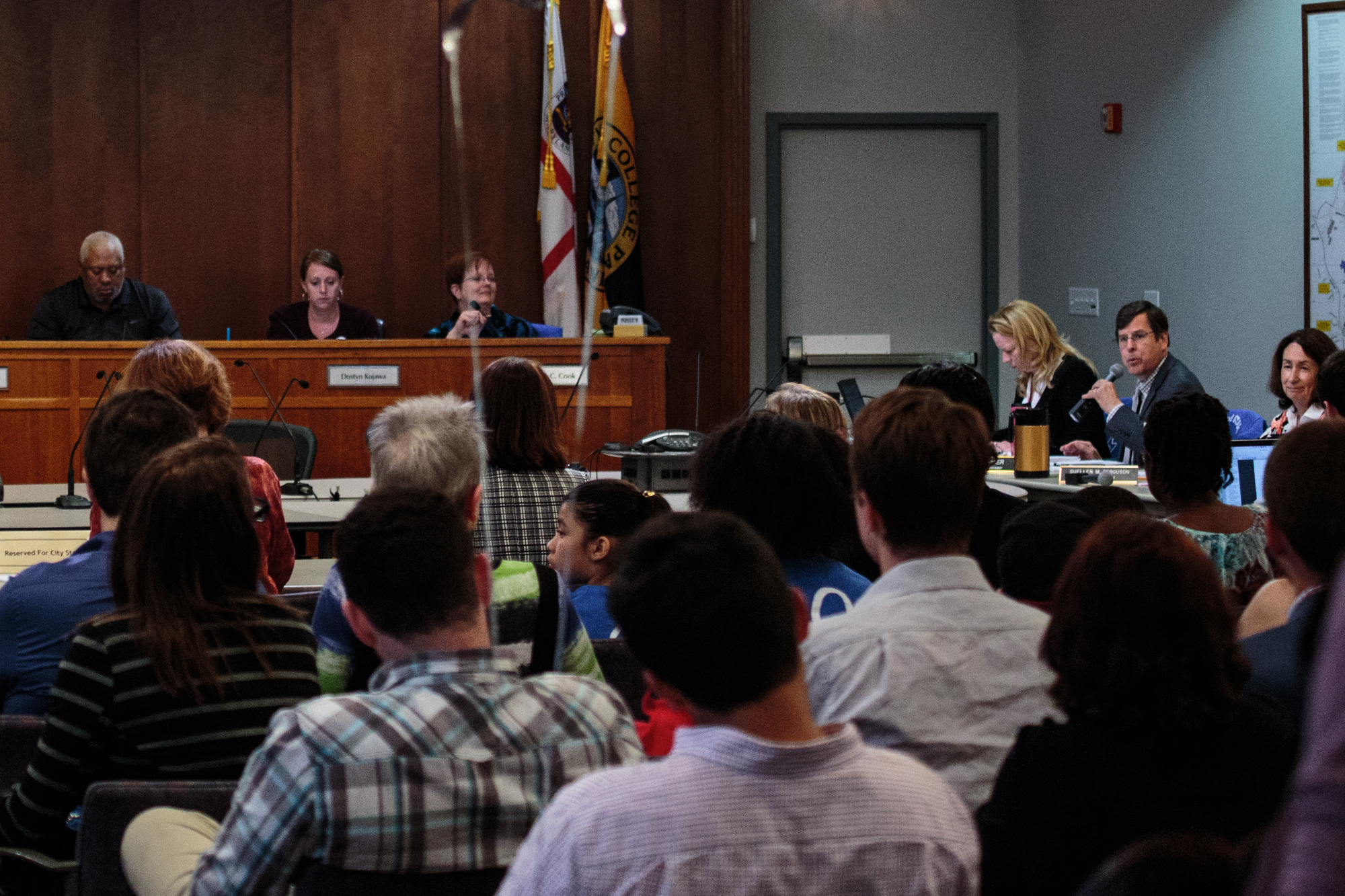College Park residents voiced their approval and discontent with both the city’s application to be a Regional Institution Strategic Enterprise Zone and the zone’s boundaries at the City Council meeting on Monday night in City Hall.
The RISE zone program would allow commercial businesses close to the University of Maryland to receive tax breaks. The zone’s proposed boundaries would enclose 500 acres, including the Innovation District, M Square Research Park and the Route 1 corridor between the campus and Route 193, city Mayor Patrick Wojahn said.
Five city residents spoke at the public forum Monday, and three supported the RISE zone and its boundaries, which the university, city, Prince George’s County and Riverdale Park have to decide upon, according to a February Diamondback article.
The city’s RISE zone application does not include retail businesses, hotels or grocery stores because these businesses do not qualify to receive tax credit, said Bill Gardiner, the assistant city manager.
“In order for the tax credit to be provided, a new development must occur,” Gardiner said. “It has to be a commercial development.”
Commercial businesses that do qualify for the tax break would receive a credit of at least 50 percent on “the incremental additional property tax value added based on the development” for the first year, and then 10 percent in the second through fifth year, according to the meeting minutes. The tax credit lasts five years.
Maryland’s Department of Commerce approved the university as a qualifying institution to anchor a RISE zone in September, according to the Diamondback article. The commerce department will again have to again decide whether the zone should be approved once the new boundaries are agreed upon and submitted.
David Engle, a 2015 alumnus of this university who founded Startup Village — a house on Metzerott Road where students and alumni pursue entrepreneurship — said he supports the RISE zone’s current boundaries. Though Engle noted the tax breaks would not apply to his own businesses, a fashion tech company named Demere and a food-truck named Q Truck, he said having a RISE zone in the city would foster innovation for companies, such as those in his startup house.
“We’ve really seen that in having companies together in one house and under one roof, we’re really able to foster innovation,” Engle said. “With the RISE zone you see the same thing with many companies coming together … being able to push together.”
District 4 Councilwoman Mary C. Cook expressed concern that businesses might take advantage of the RISE zone’s tax breaks and then leave after five years.
Gardiner admitted there’s nothing in the legislation that would prevent the business from doing that, but noted that, “from a real property standpoint — a tax point — it doesn’t matter to the county or city financially if the business stays or leaves.”
Edward Lynch, a city resident, said voting on the RISE zone should be delayed so the community can become more educated on the issue.
Lynch requested the council eradicate the northern part of the RISE zone, because, “This city needs a good public space that people of all ages want to be at.”



